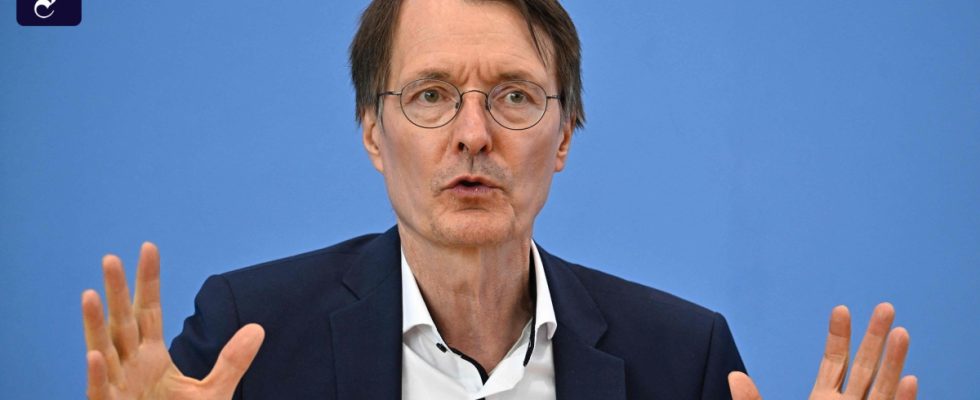Et was a time when Karl Lauterbach would not have thought of campaigning for the liberalization of cannabis. Last autumn he confirmed this again, in a wine-red sweater and dark gray jacket in front of the blue wall of the Berlin federal press conference. “For many years I was opposed to the legalization of cannabis,” Lauterbach said.
The minister had a lot to explain that day. Because the Federal Ministry of Health, his ministry, had just presented the cornerstones for partial legalization. These were plans that contradicted a lot of what the SPD health politician had stood for for a long time. Lauterbach said: “I have only changed my own position in the past year and a half.” Because the previous drug policy, the policy of prohibition, was “not particularly successful”.
Ten months later, same blue wall, same minister. On Wednesday morning, the federal cabinet passed the draft law for partial legalization, the purchase and possession of up to 25 grams of cannabis should be free of punishment for adults in the future, so-called cannabis clubs play a decisive role in this. On this day, Lauterbach no longer has to justify his earlier rejection. Instead, defend the draft law against criticism from experts.
Criticism from judicial representatives and doctors
Because there was a lot of that in the weeks before: representatives of the judiciary and investigative authorities criticized that the release in no way relieved them, on the contrary. Medical associations reminded her colleague Lauterbach that the human brain is only fully developed at around the age of 25 and that permitted consumption from the age of 18, as provided for in the draft law, can lead to considerable problems.
Lauterbach speaks of a “turnaround in drug policy”. According to Lauterbach, the partial liberalization does not go far enough for some, while others find it too big. “Criticism from two sides is often a bad sign for a law, but here it is a good sign.” Because it means that a regulation has been developed “with a sense of proportion”. The release under strict conditions will dry up the black market for cannabis, the planned regulation that no grass may be smoked near schools, daycare centers and playgrounds will serve as a preventive measure.
In general, the ministry should start a campaign now that the law has yet to be discussed by the Bundestag and Bundesrat. Adolescents and young adults want to be made aware of the risks of cannabis use on social networks, that mental disorders are on the rise and that it could be more difficult to obtain degrees. Lauterbach says: “By the end of the legislation, everyone will know that.”
At the end of the day, at least many people knew what the Union thought of the traffic light legislation: absolutely nothing. CSU regional group leader Alexander Dobrindt called the draft “absolutely irresponsible”. Probably never before had a government “so brazenly ignored the warnings of almost all experts from medicine, the police and the judiciary” on such a sensitive issue, he complained.
The interior ministers of North Rhine-Westphalia and Saxony, Herbert Reul and Armin Schuster (both CDU), had previously issued a clear warning. “This law will involve a complete loss of control,” Schuster told the “Redaktionsnetzwerk Deutschland”. And Reul warned that the traffic light would put a greater burden on the police and judiciary, although she had intended the opposite. “The planned cannabis law contains a large number of rules, prohibitions and restrictions. All of this must be controlled and violations must be prosecuted,” said Reul.

